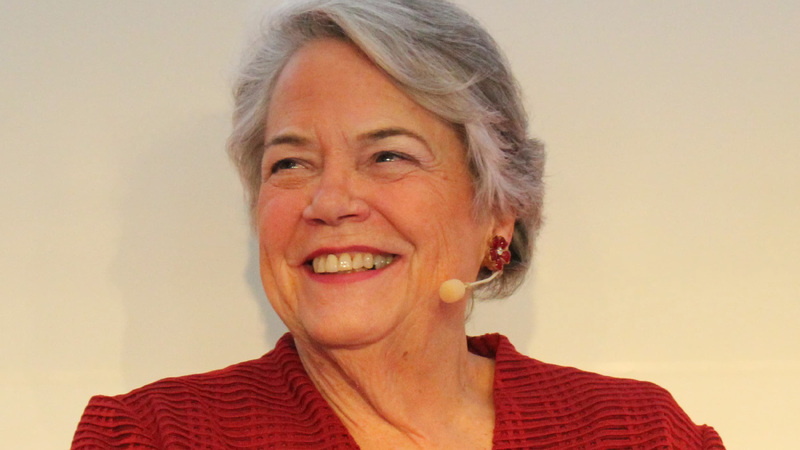You are viewing your 1 free article this month. Login to read more articles.
Rebuck urges May to give post-Brexit reassurance to creative industries
Baroness Gail Rebuck yesterday (19th January) called for the needs of the creative industries to be "truly recognised” by government following prime minister Theresa May's speech on Tuesday. While May's speech was cautiously welcomed by other publishing trade bodies for the "clarity" it offered, Baroness Rebuck noted it contained "nothing about the creative industries".
Speaking in her capacity as a Labour working peer in the House of Lords, Rebuck said the sector was “our calling card to the world” and, while other industries had been promised a hard push for special trade deals and given express reassurances, "no such reassurances" had been forthcoming for the creative industries.
"I would like to thank the Noble Lord, Lord Clement-Jones, for initiating this debate, especially because I too heard nothing about the creative industries in the prime minister’s speech on Tuesday," said Rebuck. "As Rohan Silva, a former no. 10 adviser turned tech entrepreneur, reminded us recently - the government has promised it will push hard for special trade deals with the EU on financial services, pharmaceuticals and the car industry. Construction and global banking have also been reassured they will continue to be able to access the global talent they need.
"But the creative industries - this unique melange of large and small businesses encompassing music, fashion, TV production, software development, performing arts, gaming to books – where I declare an interest as a publisher – have been given no such reassurances.
"Is it because they consist of over a quarter of a million businesses and despite being the fastest growing sector of our economy and the source of our ‘soft power’ in the world - we rarely hear of their needs as they do not employ the lobbying might of other industries.
"But we need to remember that the creative industries are our calling card to the world, vital to our future growth and competitiveness, alongside their role in social inclusion and connecting communities and bringing people from all walks of life together in creative empathy, engagement and experiences."
One of the key concerns in the light of Brexit raised by Rebuck during her speech in the Lords was access to talent and skills, acknowledging publishing has "a particular interest" since over 10% of its workforce comes from Europe "contributing to both the generation of ideas and the simple language skills needed to sell books to the rest of the world".
News that EU workers already living in Britain will "hopefully have the right to continue to live and work here” was welcomed, but, she said, "having an immigration process that sets an arbitrary salary threshold ignores the challenges involved for developing artists when their initial income is not always equal to their talent".
Championing the benefits of diversity across the creatives industries, she added: "The diversity of the workforce helps inspire innovation and knowledge of other consumer markets and helps our exports. Rather than impose limits, shouldn’t we be making it easier to recruit the right people?"
She also raised concerns about what impact Brexit will have on the sector’s access to grants and funding, as well as what it means in the war against piracy and for book publishers' trading relationships and co-investments.
Rebuck pushed for answers on how EU funding and grants like Creative Europe will replaced, noting in publishing it helps fund the translation of literary works, and regarding the regulatory framework that EU law provides, stressing the need for "a seat at the table" to influence policy, such as protecting IP from online piracy.
She underscored too the problems any tariffs would bring the book publishing industry as "a real disincentive to the 35% of our exports to the EU”. She said the aim to achieve tariff-free trade was “hugely welcome” but cautioned against “'non-tariff’ barriers” also, which she said could bring delays and extra costs.
The inflexibility of the UK's post-study work visa system finally was also highlighted, questioning the impact a reduction of EU students would have on the creative economy should university fee structures change. "Our universities, our writers, musicians, actors, producers, directors and designers all draw from a rich and diversified cultural heritage. That is how new ideas are produced that fuel our fastest growing sector," said Rebuck. "We need to be sure that the diverse needs of this sector are truly recognised and that everything possible is done to preserve and grow its vibrancy, contribution and its global impact."



















